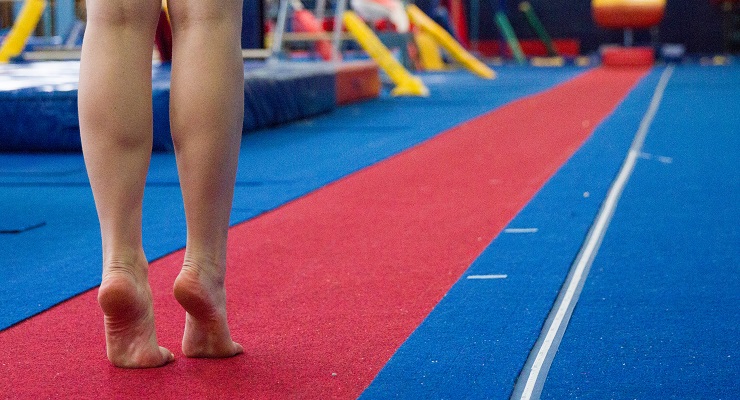
A review by the Human Rights Commission has exposed a culture of systemic abuse in Australian gymnastics, with allegations of sexual abuse, bullying, and extreme mental and physical abuse revealed by athletes.
The review, released today by sex discrimination commissioner Kate Jenkins, was requested by Gymnastics Australia following the release of the US documentary Athlete A recounting young athletes’ experiences with convicted doctor Larry Nassar who used his position to sexually abuse young girls and women across two decades.
The report made 12 recommendations and didn’t make findings against any individuals.
Control and secrecy
Of Australia’s 231,000 gymnasts, 77% are female and 91% of them are aged under 12. The power dynamic between the young children and adults in positions of authority, from coaches to doctors to nutritional and psychological staff, meant many didn’t understand when inappropriate behaviour was occurring and found it difficult to call abuse out.
Coaches often used extreme training techniques and had immense control across the gymnasts’ lives, with minors restricted from talking with their parents for days or weeks at a time while away for camps or competitions.
Interviewees said complaining often led to repercussions, from being humiliated in front of their teammates to physical punishments or not being selected for competitions.
One woman detailed being forced to do a handstand for two minutes and made to try again and again over three hours when she was unable to. Others said reacting in pain to stretches would lead to coaches stretching them more slowly as punishment.
“You weren’t allowed to cry,” one woman said.
Grooming was highlighted as a key concern in the report, with others detailing allegations of sexual abuse.
The physical toll
While many had positive experiences in the gymnastic community, others said they had heard it described by doctors as “torture on children” and were seen by male doctors and physios and given injections and medications without parental supervision.
One interviewee said the use of painkillers was commonplace, including Naprosyn, which can cause stomach ulcers if overused, and cortisone injections, which can cause skin and tissue damage. “It was just shove you full of cortisone and put you back out on the floor,” the former athlete said.
Being at the mercy of the gym club’s medical staff meant many would dismiss their own pain, feelings and judgement, leading one interviewee to develop juvenile arthritis.
“I was told I was going crazy and was weak and sensitive,” she said.
Another said she was so used to dismissing her pain, she performed four routines on a broken ankle.
Eating disorders are more prevalent in aesthetic or “lean” sports, the review found, with gymnastics’ focus on petite, slender girls in skintight leotards leading to restrictive eating. Athletes described being subject to weigh-ins, which sometimes occurred multiple times a day in front of teammates, while another said her team was forced into saunas while wearing tracksuits to help them sweat out the excess weight. Many said they had their skin folds measured, while meals at camps were designed based on aesthetics and not managed by a dietician.
“Signs of pubertal growth were considered a failure to control weight, and signs of puberty were seen as signs that you weren’t training hard enough,” one woman said.
Another said half her team became hospitalised with an eating disorder.
Complaints dismissed
The review focused on Gymnastics Australia’s response to complaints, finding allegations were not adequately addressed. Complaints were often handed down to be investigated by the alleged perpetrator, leading to repercussions for the complainant.
While Gymnastics Australia has developed policies, such as the 2019 child-safe policy, interviewees said they weren’t implemented and were routinely ignored by clubs and coaches.
Gymnastics Australia has been given more than $40 million by the Sports Commission over the past decade, with more than $20 million of that allocated to its high-performance program. Australia’s taxpayer-funded premier sporting institution, the Australian Institute of Sport, has been accused of dismissing allegations of abuse by former athletes.
The review recommended coaches be retrained and have more accountability for their training methods, that eating disorders be addressed through a training and support program designed by an independent organisation, that allegations of neglect, misconduct, bullying, sexual harassment, and assault be investigated externally of the sport, and a toll-free number be set up to allow people to make anonymous reports.
If you or someone you know is affected by sexual assault or violence, call 1800RESPECT on 1800 737 732 or visit 1800RESPECT.org.au.








Crikey is committed to hosting lively discussions. Help us keep the conversation useful, interesting and welcoming. We aim to publish comments quickly in the interest of promoting robust conversation, but we’re a small team and we deploy filters to protect against legal risk. Occasionally your comment may be held up while we review, but we’re working as fast as we can to keep the conversation rolling.
The Crikey comment section is members-only content. Please subscribe to leave a comment.
The Crikey comment section is members-only content. Please login to leave a comment.